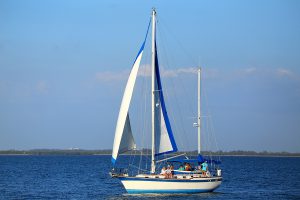Stay Afloat With These Tips And Avoid Boating Accidents
 Michael Babboni
Personal Injury
Florida is known for its beaches, sun, and fun. Tourism, fishing, and recreation all play a part in boating accidents becoming more prominent in the area. Reckless driving and negligence of other drivers can often be one of the main causes of these types of accidents. You can very easily be involved in a boating accident from no fault of your own. When this happens, you should contact our office for a free case review. You should not have to pay because of the careless acts of another. These tips are designed to help you remain safe while you are out at sea.
Michael Babboni
Personal Injury
Florida is known for its beaches, sun, and fun. Tourism, fishing, and recreation all play a part in boating accidents becoming more prominent in the area. Reckless driving and negligence of other drivers can often be one of the main causes of these types of accidents. You can very easily be involved in a boating accident from no fault of your own. When this happens, you should contact our office for a free case review. You should not have to pay because of the careless acts of another. These tips are designed to help you remain safe while you are out at sea.Boating Accidents Happen, These Tips Will Help Prevent Them
1. Always do a safety check, prior to taking your boat out. Make sure that all of your lights work on your boat, as well as on your boat trailer and vehicle. These lights are in place for a reason. They allow other boats to see your craft better, especially at night. Life jackets should be on board, worn, and able to accommodate all passengers on your boat. Check all of your fluid levels. After all, you do not want to be floating around with a broken motor or no power because you forgot to check the oil and gas. Make sure that the deck is free of debris. This will help to avoid one becoming tangled up with items, and perhaps falling overboard.
2. Create a float plan and stick to it. A float plan is basically a piece of paper with your name, address, departure point and time on it, as well as your expected destination point and arrival time. This information can be passed along to a friend or relative in case a problem arises. They can then pass the information along to the proper authorities if need be. However, if you do not stick to your itinerary this information will do no one any good. Making a plan and following it is an excellent way to help avoid boating accidents. It provides you with the information of where you are going, how you are getting there, and the already planned out schedule allows you to plan for any obstacles that you may encounter along the way.
3. Before going out on the water do a thorough job of checking the weather. Storms provide the ocean with more than enough ammunition to capsize a vessel. High winds, heavy downpours, and rough seas can plague a boating trip from the start. By doing something as simple as checking an app on your phone, or watching the 7-day forecast can help make your voyage a lot more pleasant. When the waves get too large, it becomes almost impossible to control your boat. You are left at the mercy of mother nature and when this happens accidents and personal injuries can occur. Being flung into a passing ship, due to weather that could have been foreseen, can cause damage to both vessels. It could potentially sink them both, so before you decide to go on a spontaneous adventure, at least check the weather first.
4. You can never be prepared for all accidents, but it is very important to keep a well-stocked first-aid and survival kit on your boat. This could be a huge difference maker in your outcome, should your vessel capsize. The first-aid kit should really go along with your safety check, but you can put it inside the survival kit to ensure that it is available when you need it.
